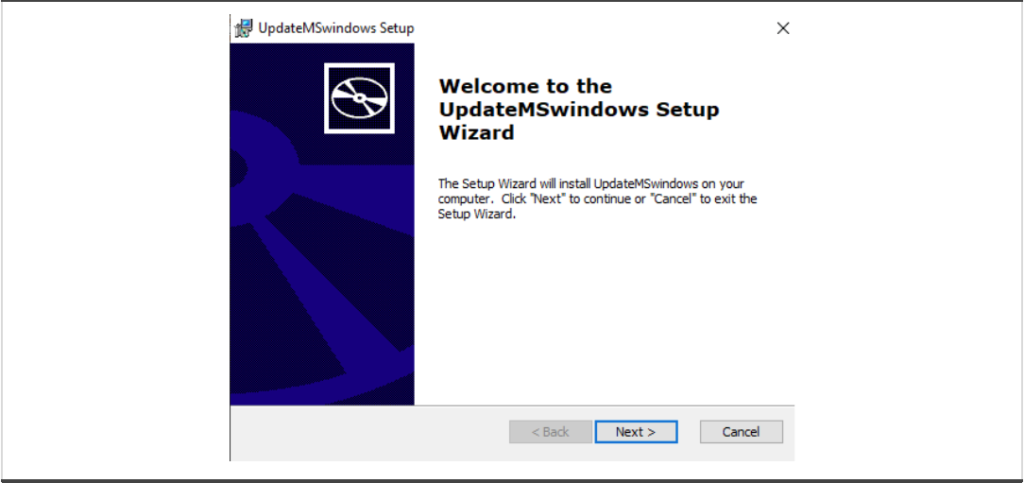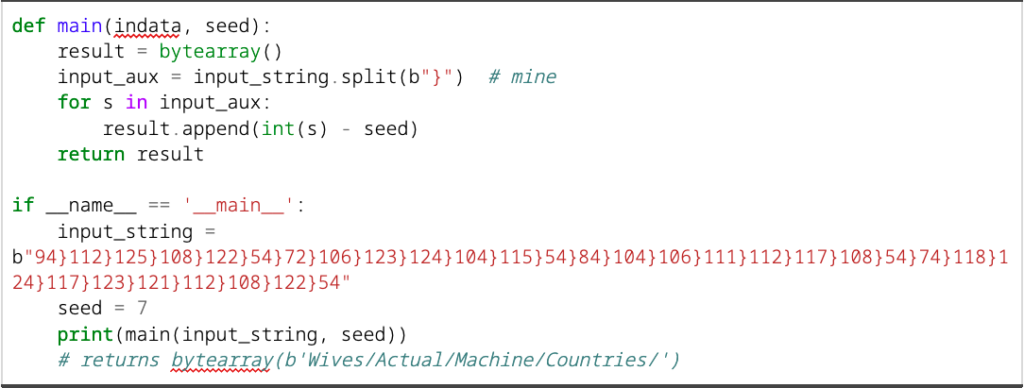Lumma Stealer Packed with CypherIt Distributed Using Falcon Sensor Update Phishing Lure

Summary
On July 23, 2024, CrowdStrike Intelligence identified the phishing domain crowdstrike-office365[.]com, which impersonates CrowdStrike and delivers malicious ZIP and RAR files containing a Microsoft Installer (MSI) loader. The loader ultimately executes Lumma Stealer packed with CypherIt.
The domain was registered on July 23, 2024, days after July 19, 2024, when an issue present in a single content update for CrowdStrike’s Falcon sensor — which impacted Windows operating systems — was identified and a fix was deployed.
The campaign is likely linked to a June 2024 Lumma Stealer distribution campaign in which a threat actor leveraged advanced social-engineering techniques, such as using spam floods and voice phishing (vishing), to deliver malicious binaries.
Details
Phishing Domain
On July 23, 2024, the domain crowdstrike-office365[.]com served a ZIP file (SHA256 hash:
50f9c384443a40d15a6e74960f1ba75dcf741eabdb5713bd2eba453a6aad81e5) that contains the Microsoft Installer (MSI) file WidowsSystem-update.msi (SHA256 hash:
3ed535bbcd9d4980ec8bc60cd64804e9c9617b7d88723d3b05e6ad35821c3fe7), which is a loader.
As of this writing, the domain does not appear to have a landing page and exposes an open directory containing the hosting URLs for the malicious ZIP and RAR archives (Figure 1).

Figure 1. Phishing domain content
MSI Loader
The MSI loader displays a decoy installation (Figure 2). Upon execution, the MSI extracts and executes a self-extracting RAR (SFX) file, plenrco.exe (SHA256 hash:
c3e50ca693f88678d1a6e05c870f605d18ad2ce5cfec6064b7b2fe81716d40b0), with the command line plenrco.exe -pqwerty2023 -s1. This extracts another RAR SFX archive file stored in the PE overlay plenrco.exe. The RAR archive contains a Nullsoft Scriptable Install System (NSIS) installer with the filename SymposiumTaiwan.exe (SHA256 hash:
c1e27b2e7db4fba9f011317ff86b0d638fe720b945e933b286bb3cf6cdb60b6f).

Figure 2. MSI file
NSIS File
The NSIS installer SymposiumTaiwan.exe contains fragments of a legitimate AutoIt executable (SHA256 hash: 865347471135bb5459ad0e647e75a14ad91424b6f13a5c05d9ecd9183a8a1cf4) and a compiled AutoIt script (SHA256 hash: 66ad1c04ebb970f2494f2f30b45d6a83c2f3a2bb663565899f57bb5422851518).
The NSIS also contains a batch script loader named Open.cmd (SHA256 hash: 6217436a326d1abcd78a838d60ab5de1fee8a62cda9f0d49116f9c36dc29d6fa), which includes useless code to hide the actual functionality. Upon execution, the Open.cmd lists processes related to security products by invoking the Windows command tasklist. If one of the processes is detected, the malware deletes itself and terminates.
The batch script then concatenates the aforementioned fragments (previously dropped to %TMP%) to two files: Dicks.pif (an AutoIt executable) and k (a compiled AutoIt script), both of which are written to the path %TMP%\558563. Finally, the batch script runs the AutoIt executable, passing the compiled script as an argument.
CypherIt’s AutoIt Script
The decompiled AutoIt script (SHA256 hash: 2856b7d3948dfb5231056e52437257757839880732849c2e2a35de3103c64768) is a CypherIt loader that is heavily obfuscated to hinder static analysis. The loader implements string obfuscation (the Python re-implementation is included in Figure 3). The obfuscation is based on a subtraction with a seed, which is different for each string.

Figure 3. Python code to deobfuscate strings
Anti-Analysis
The AutoIt loader terminates if one of the following checks is met:
- The hostname is
tz,NfZtFbPfHorELICZ; these hostnames are associated with antivirus (AV) emulators1 - The username is
test22 - The file
C:\aaa_TouchMeNot_.txtexists; this file belongs to Windows Defender sandbox - The antivirus processes
avastui.exeorbdagent.exeare running
Next-Stage Payload
The AutoIt loader contains two shellcodes for 32-bit and 64-bit systems that implement the RC4 algorithm to decrypt the final payload, which is also hardcoded within the AutoIt loader. The AutoIt script runs one of the two shellcodes depending on the system architecture.
The final payload is RC4-encrypted — with the key 656505 — and LZNT1-compressed, which results in a Lumma Stealer sample (SHA256 hash: d669078a7cdcf71fb3f2c077d43f7f9c9fdbdb9af6f4d454d23a718c6286302a; build timestamp 2024-07-19 15:01:38 UTC). The build timestamp indicates the actor highly likely built the sample for distribution the day after the single content update for CrowdStrike’s Falcon sensor was identified and a fix was deployed.
Lumma Stealer
The final payload is a Lumma Stealer executable that contacts the command-and-control (C2) server at iiaiyitre[.]pa at the time of analysis. Additional C2 URLs, listed in Table 1, were obtained from the malware’s configuration. Lumma Stealer is a commodity information stealer that collects information from browsers, including credentials, cookies, autofill data and browser-extension data.
The same C2 domain identified in this activity was observed in a recent widespread opportunistic spam flood and voice phishing (vishing) campaign in June 2024; in that campaign, the threat actor sent numerous spam emails and conducted follow-up phone calls masquerading as a “helpdesk” operator via Microsoft Teams. Based on the shared infrastructure between the campaigns and apparent targeting of corporate networks, CrowdStrike Intelligence assesses with moderate confidence that the activity is likely attributable to the same unnamed threat actor.
Recommendations
These recommendations can be implemented to help protect against the activity described in this report.
- Only accept updates delivered through official CrowdStrike channels and adhere to CrowdStrike support teams’ technical guidance
- Train users to avoid executing files from untrusted sources
- Check website certificates on the download page to ensure downloaded software originates from a legitimate source
- Use browser settings to enable download protection that can issue warnings regarding potentially harmful websites or downloads
- Consider blocking AutoIt executables when not required in the corporate environment; CypherIt-packed executables use AutoIt and .pif files to run payloads
Appendix
Falcon LogScale Queries
This Falcon LogScale query detects the activity described in this alert.
// Indicators related to CSA-240849 (CSA-240849)
|
Indicators of Compromise (IOCs)
| Description | Detail |
| Hosting URL | https[:]//crowdstrike-office365[.]com/go[.]microsoft.crowdstrike-office365[.]com/download.html |
| Phishing Domain | crowdstrike-office365[.]com |
| Lumma Stealer SHA256 hash | d669078a7cdcf71fb3f2c077d43f7f9c9fdbdb9af6f4d454d23a718c6286302a |
| Lumma Stealer C2 URLs | iiaiyitre[.]pa
|
Compiled AutoIt Script containing Lumma Stealer (k) |
66ad1c04ebb970f2494f2f30b45d6a83c2f3a2bb663565899f57bb5422851518 |
NSIS installer containing AutoIt Script (SymposiumTaiwan.exe) |
c1e27b2e7db4fba9f011317ff86b0d638fe720b945e933b286bb3cf6cdb60b6f |
Batch script loader in NSIS installer (Open.cmd) |
6217436a326d1abcd78a838d60ab5de1fee8a62cda9f0d49116f9c36dc29d6fa |
Self-extracting archive containing AutoIt Script (plenrco.exe) |
c3e50ca693f88678d1a6e05c870f605d18ad2ce5cfec6064b7b2fe81716d40b0 |
| MSI files containing self-extracting archive
(
|
1e06ef09d9e487fd54dbb70784898bff5c3ee25d87f468c9c5d0dfb8948fb45c
|
| RAR and ZIP files containing MSI files
(
|
6ec39c6eee15805ef3098af7ae172517a279b042fc6c323ebf1aef8f8f2b21be
|
Table 1. Indicators of compromise
MITRE ATT&CK
This table details the MITRE ATT&CK® tactics and techniques described in this report.
| Tactic | Technique | Observable |
| Initial Access | T1566 – Phishing | The malicious MSI is distributed via a phishing domain |
| Execution | T1059.003 – Command and Scripting Interpreter: Windows Command Shell | The NSIS installer contains a batch script that deletes the malware if security products are detected |
| T1204 – User Execution | The user is prompted to install the malicious executable, which masquerades as an MSI file | |
| Defense Evasion | T1027.002 – Obfuscated Files or Information: Software Packing | Lumma Stealer is packed using CipherIT |
| Exfiltration | T1041 – Exfiltration Over C2 Channel | Lumma Stealer sends all exfiltrated data to its C2 server |
Table 2. MITRE ATT&CK mapping
1 https[:]//www[.]usenix[.]org/system/files/conference/woot16/woot16-paper-blackthorne_update[.]pdf
Additional Resources
Read other blog posts from CrowdStrike Intelligence regarding the Falcon content issue:
- Falcon Sensor Content Issue from July 19, 2024, Likely Used to Target CrowdStrike Customers
- Likely eCrime Actor Uses Filenames Capitalizing on July 19, 2024, Falcon Sensor Content Issues in Operation Targeting LATAM-Based CrowdStrike Customers
- Threat Actor Uses Fake CrowdStrike Recovery Manual to Deliver Unidentified Stealer
- Threat Actor Distributes Python-Based Information Stealer Using a Fake Falcon Sensor Update Lure
Related Content

Threat Actor Distributes Python-Based Information Stealer Using a Fake Falcon Sensor Update Lure

Threat Actor Uses Fake CrowdStrike Recovery Manual to Deliver Unidentified Stealer
